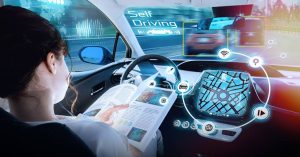The Evolution of Technology in the Car Insurance Quote Process
Technology has significantly impacted the car insurance quote process over the years. From its humble beginnings to the complex algorithms and artificial intelligence used today, the evolution of technology has revolutionized how insurance companies determine premiums and provide quotes to their customers. This essay will explore the historical context of the evolution of technology in the car insurance quote process, identify key figures who have contributed to its development, and analyze the impact of these advancements on the industry. Additionally, we will discuss various perspectives on the topic, including both positive and negative aspects, and consider potential future developments related to the evolving technology in car insurance quotes.
The Historical Context of the Evolution of Technology in the Car Insurance Quote ProcessThe car insurance industry has come a long way since the first automobile insurance policy was sold in the late 19th century. Initially, insurance companies relied on manual processes to assess risk and provide quotes to their customers. This involved collecting information from applicants, such as driving history, vehicle details, and personal information, and manually calculating premiums based on this data.
However, as technology advanced, insurance companies began to leverage computers and data analytics to streamline the quote process. The introduction of actuarial science in the mid-20th century further revolutionized how insurance companies assess risk and set premiums. Actuarial models allowed insurers to more accurately predict the likelihood of an individual filing a claim and adjust premiums accordingly.
Key Figures in the Evolution of Technology in the Car Insurance Quote ProcessSeveral key figures have played a significant role in the evolution of technology in the car insurance quote process. One such individual is Claude Shannon, a mathematician and electrical engineer who is known as the “father of information theory.” Shannon’s work laid the foundation for modern data processing and communication systems, which have been instrumental in the development of technology used in the insurance industry.
Another influential figure is Robert Morris, a computer scientist who invented the first computer worm in 1988. While Morris’s worm caused widespread damage to computer networks, it also highlighted the vulnerabilities of digital systems and the need for robust cybersecurity measures in the insurance industry.
Impact of the Evolution of Technology in the Car Insurance Quote ProcessThe impact of technology on the car insurance quote process has been profound. Advancements in data analytics and artificial intelligence have allowed insurance companies to analyze vast amounts of data quickly and accurately, leading to more personalized and competitive quotes for customers. Additionally, technology has enabled insurers to streamline their operations, reduce costs, and enhance customer service through online quote platforms and mobile apps.
However, there are also drawbacks to the increasing reliance on technology in the insurance industry. Concerns about data privacy and security have become more prevalent, as insurers collect and analyze large amounts of personal information to assess risk and set premiums. Additionally, the use of algorithms and artificial intelligence in the quote process has raised questions about fairness and bias, as some individuals may be disadvantaged by automated systems that may not account for unique circumstances.
Future Developments in the Evolution of Technology in the Car Insurance Quote ProcessLooking ahead, the car insurance industry is likely to continue embracing technology to improve the quote process further. Advancements in telematics, blockchain, and machine learning are expected to play a more significant role in assessing risk and setting premiums. Telematics devices, such as black boxes and smartphone apps, can track driver behavior in real-time and provide more accurate data to insurers, resulting in more personalized quotes and incentives for safe driving.
Blockchain technology, with its secure and transparent data storage capabilities, can help insurers streamline claims processing and prevent fraud. Additionally, machine learning algorithms can analyze vast amounts of data to detect patterns and trends, leading to more accurate risk assessments and quote predictions.
In conclusion, the evolution of technology in the car insurance quote process has significantly transformed the industry, from manual calculations to sophisticated algorithms and artificial intelligence. While there are both positive and negative aspects to this technological evolution, it is clear that technology will continue to drive innovation in the insurance industry and enhance the customer experience. By staying abreast of new developments and adapting to changing trends, insurers can better serve their customers and remain competitive in a rapidly evolving digital landscape.